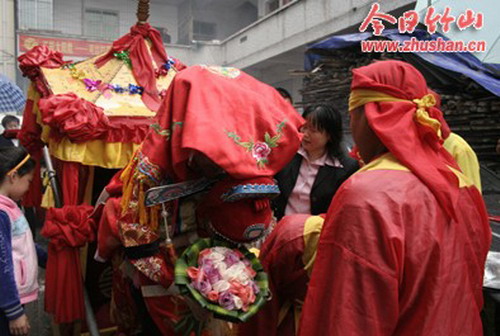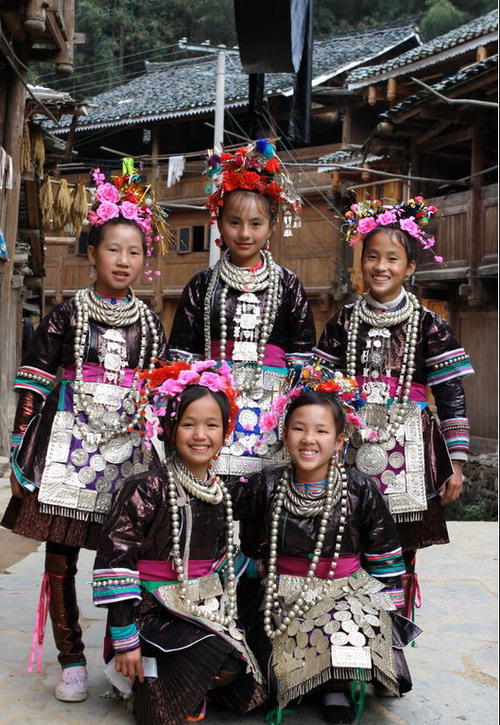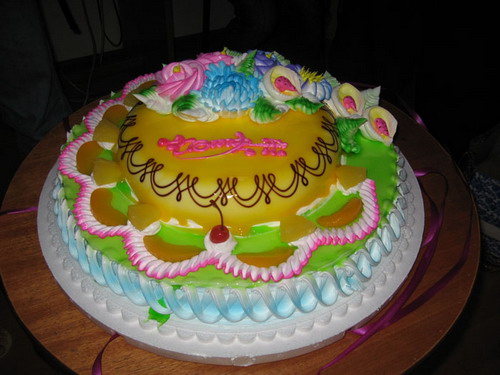| About Hubei | Culture & Arts | ||
| Attractions | Routes | ||
| Dining | Shopping | ||
| Hotels | Transportation | ||
| Entertainment | Travel agencies |
Jingshan to attract Wuhan tourists
Storytelling queen
For the love of Wuhan
Dangyang to promote tourism


Folk custom of Zhushan county
Updated: 2011-12-29
Marriage
In the olden times, marriages for men and women were arranged by parents. They complied with, "dictates of parents and words of matchmakers," and a strict following of hierarchy. Under the old feudal ethical code, boys were preferred to girls. Women had to abide by "three obediences and four virtues." The three obediences in ancient China were that a woman was required to obey her father before marriage, her husband during married life and her sons in widowhood. The four virtues were fidelity, physical charm, propriety in speech and efficiency in needle work. A man could have plural marriages and officials and rich squires could buy maid servants and concubines. Ordinary families adopted child brides. The feudal ethical code demanded women to hold chastity, and widows should not remarry. Women were bought, given as presents, or kidnapped. They suffered unspeakably as concubines, prostitutes or servants. Men had difficulties too and poor men of towns and villages were unable to marry all their lives.
 |
| Folk customs of Zhushan county |
Marriage was exceedingly complicated in Zhushan. It involved a series of procedures such as entrusting a matchmaker to propose a marriage, checking horoscopes, getting engaged, extending dowry gifts, practicing divination and taking brides with sedan chairs. During the period, the bridegroom's side spent a good deal of money on buying betrothal gifts, This included gold and silver jewelry, high-grade apparel fabrics, furniture, decorations for the bridal chamber, and preparation banquets to entertain guests. The bride's family would also buy dowries and clothes, and envelope red packets containing money as gifts. They spent no less than the bridegroom's side. Other matrimonial forms involved taking in a son-in-law to bear the bride's family name, remarrying after the death of wife, and consummating the child bride.
Birthday celebration
Zhushan is known for the tradition of celebrating birthdays. Babies have the ritual of taking a bath in the third day of birth, holding a one-month birthday party and a one-year birthday party.
 |
| Folk customs of Zhushan county |
When the young and mid-aged celebrate their birthdays, relatives, friends and neighbors send gifts for congratulations. At birthday parties of the elderly, the younger generation, relatives and friends offer congratulations with gifts, addressing the old people as the "god of longevity."
 |
| Folk customs of Zhushan county |
The birthday congratulation gifts are mainly cigarettes, wines, candies and cakes. In general, people offer congratulations with gifts in the evening before the birthday and attend the banquet. In cities and towns, people give a banquet at noon on the date of their birth to entertain the guests.
In the 1990s, it was in fashion to send birthday cakes for birthday congratulations as a sign of good luck, good health and a long life. A few middle-aged men and women invited friends to a banquet to celebrate their 36th birthday with an eye to bring good luck and ward off calamities. Since the 1990s, it has become popular to celebrate the 36th birthday of relatives and friends.
Funeral
In Zhushan, funerals are traditionally arranged as a coffin burial, with diversified rites according to the family's economic positions.
Well-off families will pursue expensive miscellaneous etiquettes. The rites are comprised of bidding farewell to the dead, making the bed, laying the body in a coffin, keeping the coffin in a temporary shelter before burial, carrying the coffin to the cemetery and holding a memorial ceremony at regular intervals.
When the old is dying, the kinsfolk gather around in silent tribute and kneel to attend upon them. If the old dies, the family will announce the death for relatives and friends. As the body has not turned cold, the family bathes the dead and put on clean clothes. They lay the dead on the bed and put a copper coin in the deceased's mouth, a string of "hitting-dog cakes" in their hand and tie their legs with a cotton rope.
The coffin is paved with silk and satin, meaning "spreading gold and covering silk." After that, the family sets up a mourning hall with an altar ahead of the coffin, and an altar lamp which burns day and night. The younger generation of the dead wears white native mourning cloth gowns, with linen waistband and a plain white cloth scarf.
The dutiful sons take turns to stand as guards at the bier, normally for three days and occasionally for seven or 15 days. During the period, the family requests a geomancer to fix the graveyard and arrange the details of the funeral procession.
In the olden days, the family would invite Taoist priests for Taoist rites or monks to recite prayers when the coffin is in temporary shelter before burial. The people showing condolences presented various sacrificial offerings, including a wreath, a scroll of silk for mourning, and touch and joss paper. Close relatives sent unusual sacrificial offerings.
Well-off son-in-laws would prepare a pig and sheep as oblations. The pig and sheep were tied up on two square tables and would be carried with other sacrifices to the deceased's house for mourning.
On the night of the third day, a ceremony is held in the temple. A band marches in the front, followed by relatives and friends with lanterns in hand. Taoist priests come while beating gongs and drums. The last of the team are children of the dead, wearing mourning dresses and holding plates. The destinations are the Town God's Temple and ancestral temple. After that, the coffin is sealed. The dutiful sons stand around the coffin to bid farewell to the dead. The relatives of the dead utter cries of anguish and bewail mournfully. The memorial ceremony is held all night before carrying the coffin to the cemetery. All the relatives and friends attend the burial ceremony.